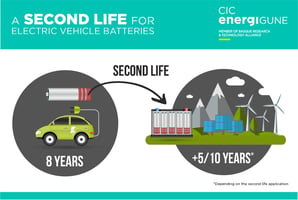In a world where sustainability is becoming increasingly important, it's essential that we shift...
How to Choose the Best Energy Storage Product for Residential Use (Clone)

As the world moves towards a greener future with EVs, more homeowners are looking to solar power and energy storage as a way to reduce their carbon footprint and save money on their energy bills. However, with so many options on the market, knowing which energy storage product is the right choice for your home can be overwhelming. While the Tesla Powerwall may be the most well-known option, it is also expensive with a long lead time. So, how do you choose the best energy storage product for residential use? This blog post will discuss the benchmarks for a sound home energy storage system or battery pack and how to pick the right one to fit your needs.
1. Capacity:
The battery's capacity is the first thing to consider when choosing an energy storage product. The higher the capacity, the more energy the battery can store. This means you can use your energy storage product for extended periods, which is essential if you experience power outages or have a high energy demand. The capacity of the battery should be able to meet your daily energy needs. To determine your daily energy needs, you can use an online energy calculator or consult a professional to help pick a suitable home capacity.
2. Durability:
A second factor to consider when selecting an energy storage product is durability. Most batteries have a 10-15 years lifespan, so choosing an energy storage product that can stand the test of time is essential. A good battery should be able to operate efficiently, even under the harshest weather conditions. For example, if you live in an area with extreme temperatures, ensure the battery can withstand these conditions.
3. Safety:
Safety is another important consideration when selecting an energy storage product. You want a battery that is designed with multiple safety features. These features may include thermal controls, overcharge protection, and short-circuit protection. These safety features ensure that the battery operates safely and prevents any accidents or risks that can occur from using the battery.
4. Cost:
The cost of the energy storage product is also an important consideration. While you may be able to find cheaper options on the market, it is important to ensure that the quality of the product is not compromised. In other words, focus on something different than the price. Consider the features, capacity, and durability of the battery. You may pay more for a better-quality battery, but it will be worth the investment in the long run.
5. Warranty:
Lastly, could you make sure to check the warranty of the energy storage product? Warranties can vary from one to ten years. A warranty of at least five years is typically a good benchmark for a reliable battery. A warranty protects you in case of any defects or issues with the battery. It also gives you peace of mind when investing in the product.

Here's a cost calculator to compare and contrast. https://solar.cleanenergyreviews.info/savings-calculator
Next, you need to choose a panel, and here are things to watch out for. Warranty; needs to last 25 years. Connections are provided and are the direct plugins with no electrician required. Cost is always a driver, but weigh it long-term because cheap upfront is not always good. Finally, don't buy a roof rack and go with the hidden panels or flat to the roof. It doesn't kill the value of your home, and your neighbors will thank you.
Please let us know if you have any thoughts or comments.
Pictures - Powerwall - Electrek.com, Solar chart - eia.org, best home battery - energyreviews.com


